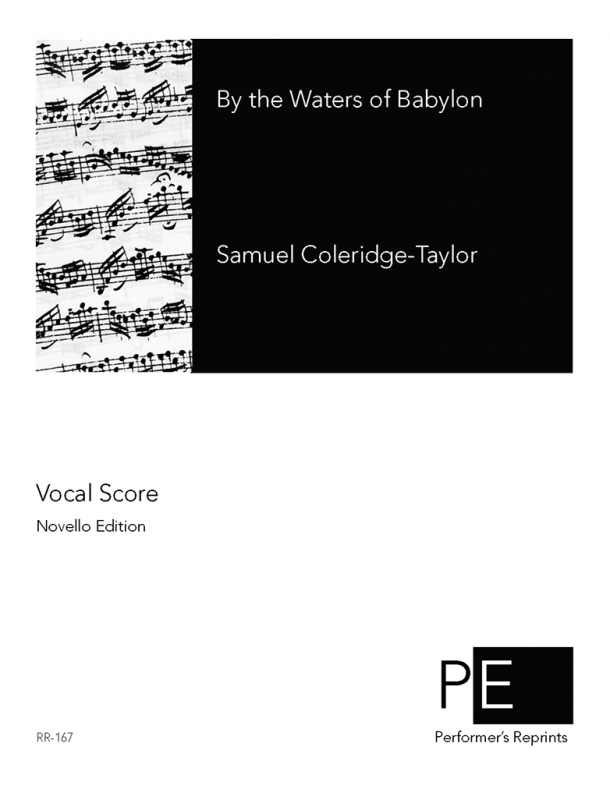Obscure Music Monday: Coleridge-Taylor's By the Waters of Babylon
Samuel Colderidge-Taylor (Aug. 15, 1875 - Sept. 1, 1912) was born in London, England, to Alice Hare Martin, an English woman, and Dr. Daniel Peter Hughes Taylor, from Sierre Leone. They were not married, and Daniel Taylor returned to Africa before 1875, not even knowing he had a son. Martin named her son after the poet, Samuel Taylor Coleridge, and was raised in Croydon, Surrey by his mother, and her father. Coleridge-Taylor studied violin at the Royal College of Music, and was later on appointed a professor at the Crystal Palace School of Music, and conducted the orchestra at the Croyden Conservatory. Coleridge-Taylor found success at the Three Choirs Festival in Gloucester and Worcester; he was recommended by Edward Elgar, who heard rave reviews about Coleridge-Taylor from noted music critic and editor August Jaeger. He had much success during his time, and his interest in African-American culture brought him to the States on several occasions where his success continued. He made such an impression that he was invited to the White House by Theodore Roosevelt.
One of the many choral works he wrote was By the Waters of Babylon, which takes after Psalm 137. Coleridge-Taylor's writing for choir is superb; he excels at creating rich, thick textures and also thinner textures that don't sound weak or unsupported. The general tone of this work is yearning, which is just what the Psalm is about — the yearning of the Jewish people while they were in Babylonian exile, yearning for Jerusalem. It's a beautiful, poignant work.
We can't find a recording of this, but we hope that changes soon!



Jack Hedquist
Thank you for sharing it. VF